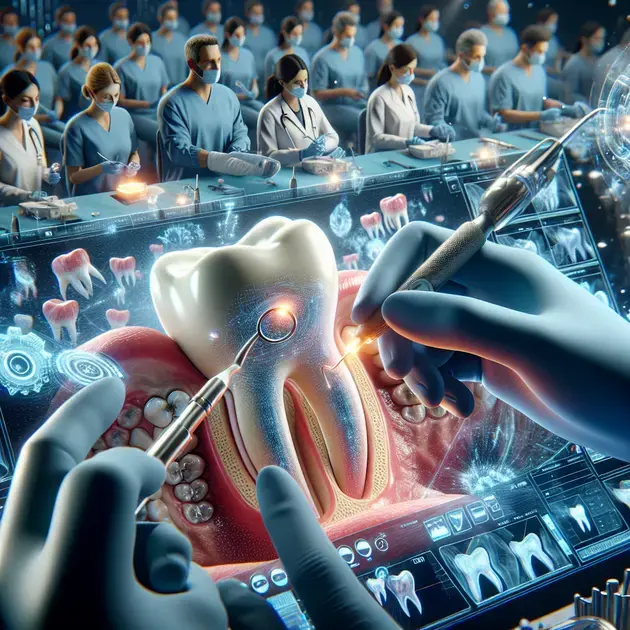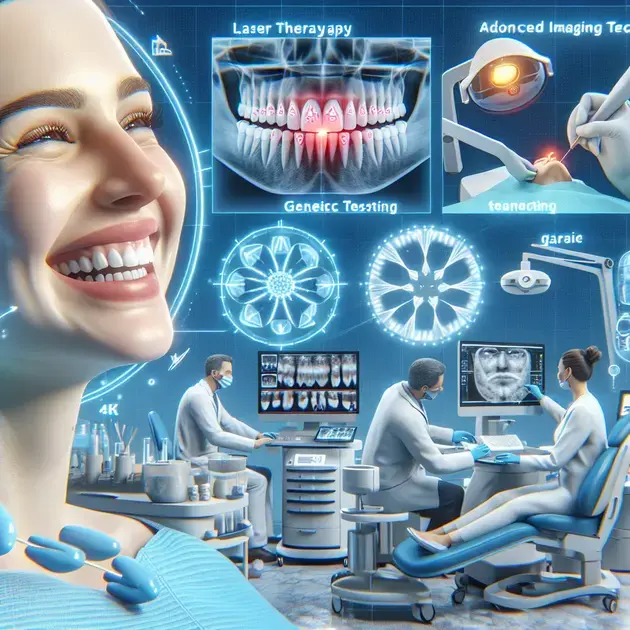When it comes to treating periodontitis, understanding the role of medication is essential in developing an effective treatment plan. Medications can play a crucial part in managing the symptoms of periodontitis and preventing its progression.
From antibiotics to antimicrobial mouth rinses, there are several medication options available to help combat periodontal disease. In this article, we will delve into the various treatment options for periodontitis and the importance of medication in maintaining oral health.

Understanding the Role of Medication in Periodontitis Treatment
When it comes to treating periodontitis, medication plays a crucial role in controlling the infection and promoting healing. One of the main medications used in periodontitis treatment is antibiotics. These medications help to eliminate the bacteria causing the infection and reduce inflammation in the gums. To access information on different types of antibiotics commonly prescribed for periodontitis, you can visit reputable medical websites such as WebMD or Mayo Clinic.
In addition to antibiotics, antimicrobial mouth rinses are also commonly recommended for periodontitis treatment. These mouthwashes help to reduce plaque and bacteria in the mouth, promoting better oral health. To learn more about the benefits of antimicrobial mouth rinses, you can check out articles from the American Dental Association (ADA) website.
For more severe cases of periodontitis, medication in the form of oral capsules may be prescribed. These capsules contain a higher concentration of antibiotics and are typically taken for a specific period to combat the infection. To find out more about oral capsules for periodontitis treatment, you can consult with your dentist or periodontist.
In summary, medication in the form of antibiotics, antimicrobial mouth rinses, and oral capsules plays a vital role in treating periodontitis by eliminating bacteria, reducing inflammation, and promoting healing in the gums.
Exploring Different Medication Options for Periodontal Disease Management
When managing periodontal disease, it is essential to explore different medication options to effectively control the condition and prevent further damage to the gums and teeth. One common medication used for periodontal disease management is chlorhexidine gel. This gel helps to reduce plaque and inflammation in the gums, promoting better oral health. To find out more about chlorhexidine gel and how to use it, you can visit the National Institutes of Health (NIH) website for detailed information.
In some cases, corticosteroids may be prescribed to manage severe inflammation in the gums caused by periodontal disease. These medications help to reduce swelling and promote healing in the affected areas. To learn more about the use of corticosteroids in periodontal disease management, you can read articles from the Journal of Periodontology or consult with a dental professional.
Another medication option for periodontal disease management is enzyme suppressants. These medications help to inhibit enzymes that break down gum tissue, preventing further damage and promoting better gum health. To explore more information on enzyme suppressants for periodontal disease, you can refer to studies published in the Journal of Clinical Periodontology.
In conclusion, exploring different medication options such as chlorhexidine gel, corticosteroids, and enzyme suppressants is crucial for effectively managing periodontal disease and maintaining optimal oral health.
The Importance of Medication in Maintaining Oral Health
Medication plays a significant role in maintaining oral health by controlling infections, reducing inflammation, and promoting overall dental wellness. One key aspect of medication in oral health maintenance is the use of fluoride treatments. Fluoride helps to strengthen tooth enamel, prevent cavities, and reduce the risk of gum disease. To learn more about the benefits of fluoride treatments for oral health, you can explore resources from the Centers for Disease Control and Prevention (CDC) website.
Another essential medication for maintaining oral health is probiotics. These supplements contain beneficial bacteria that help to balance the oral microbiome, reducing the risk of infections and enhancing gum health. To discover more about the role of probiotics in oral health maintenance, you can read research articles from the International Journal of Molecular Sciences.
Antifungal medications are also vital for maintaining oral health, especially in cases of oral thrush or fungal infections. These medications help to eliminate harmful fungi in the mouth, promoting a healthier oral environment. To find out more about antifungal medications for oral health maintenance, you can consult with a healthcare provider or visit the American Academy of Oral Medicine website for information.
In essence, the importance of medication in maintaining oral health cannot be overstated, as it plays a crucial role in preventing infections, reducing dental issues, and supporting overall oral wellness.

Choosing the Right Medication for Gum Disease Treatment
When it comes to treating gum disease, choosing the right medication is crucial for effectively managing and improving the condition. There are several types of medications available for gum disease treatment, including antibiotics, antimicrobial mouthwashes, and topical gels. Your dentist or periodontist will assess your specific case and recommend the most suitable medication based on the severity of your gum disease and your overall oral health.
One common type of medication used for gum disease treatment is antibiotics. These medications can be prescribed in pill form or as a topical gel that is applied directly to the gums. Antibiotics work by targeting and killing the bacteria causing the gum disease, helping to reduce inflammation and promote healing. It is important to follow your dentist’s instructions carefully when taking antibiotics to ensure the best results.
Another option for gum disease treatment is antimicrobial mouthwashes. These mouthwashes contain ingredients that help to kill bacteria in the mouth and reduce plaque buildup. Using an antimicrobial mouthwash as directed can help to improve gum health and prevent the progression of gum disease. Incorporating this medication into your daily oral hygiene routine can be beneficial in maintaining healthy gums.
Topical gels are also commonly used in gum disease treatment. These gels are applied directly to the gums and can help to reduce inflammation and promote healing. Your dentist may recommend a specific topical gel based on your individual needs and the severity of your gum disease. Consistent use of topical gels as prescribed can aid in controlling the symptoms of gum disease and preventing further complications.
In conclusion, choosing the right medication for gum disease treatment is essential in effectively managing the condition and improving oral health. Whether it be antibiotics, antimicrobial mouthwashes, or topical gels, following your dentist’s recommendations and incorporating the prescribed medication into your oral care routine can help to combat gum disease and promote a healthy smile.
Exploring Innovative Approaches to Managing Periodontitis Symptoms
Innovative approaches to managing periodontitis symptoms are constantly being developed to provide more effective and personalized treatment options for patients. From advanced imaging technology to targeted drug delivery systems, these innovative approaches aim to enhance the precision and efficiency of periodontal treatments, ultimately improving patient outcomes.
One innovative approach to managing periodontitis symptoms is the use of laser therapy. Laser technology allows for more precise and minimally invasive treatment of gum disease by targeting and eliminating diseased tissue while preserving healthy tissue. This approach can result in faster healing times and reduced discomfort for the patient compared to traditional surgical methods.
Another emerging innovation in the field of periodontal treatment is the development of personalized treatment plans based on genetic testing. By analyzing a patient’s genetic profile, dentists and periodontists can tailor treatment strategies to target specific genetic risk factors for periodontitis. This personalized approach can lead to more effective treatment outcomes and long-term management of the disease.
Advanced imaging techniques, such as cone beam computed tomography (CBCT), are also revolutionizing the way periodontitis symptoms are diagnosed and treated. CBCT provides detailed 3D images of the oral structures, allowing for a more thorough assessment of the extent of gum disease and better treatment planning. This advanced imaging technology enables dentists to visualize the condition of the gums with unprecedented clarity, leading to more precise and successful treatment outcomes.
In conclusion, exploring innovative approaches to managing periodontitis symptoms is crucial for advancing the field of periodontal care and improving patient outcomes. From laser therapy to personalized genetic testing and advanced imaging technology, these innovative strategies hold great promise in revolutionizing the treatment of periodontitis and enhancing the overall oral health of patients.
The Connection Between Medication and Improved Oral Hygiene
The connection between medication and improved oral hygiene is significant in the treatment and management of various oral health conditions, including gum disease. Medications prescribed for oral health issues can play a crucial role in controlling symptoms, reducing inflammation, and promoting overall oral hygiene practices. Understanding this connection and following the recommended medication regimen can lead to better oral health outcomes.
Certain medications, such as antibiotics and antimicrobial mouthwashes, are commonly used to treat gum disease and other oral infections. These medications work by targeting the bacteria responsible for the infection, helping to reduce inflammation and prevent further damage to the gums. By incorporating these medications into a comprehensive oral hygiene routine, patients can effectively manage their condition and improve their overall oral health.
In addition to treating specific oral health issues, some medications can also have indirect benefits for oral hygiene. For example, medications that alleviate dry mouth (xerostomia) can help stimulate saliva production, which plays a crucial role in maintaining oral health. Saliva helps to wash away food particles, neutralize acids, and protect against oral infections, contributing to improved oral hygiene.
It is important for patients to communicate with their dentist or healthcare provider about all medications they are taking, including over-the-counter drugs and supplements, as some medications can have side effects that impact oral health. By understanding the connection between medication and improved oral hygiene, individuals can take proactive steps to maintain a healthy mouth and prevent oral health issues.
In conclusion, the relationship between medication and improved oral hygiene is essential for effective treatment and management of oral health conditions. By selecting the right medications, following prescribed regimens, and practicing good oral hygiene habits, individuals can work towards achieving optimal oral health and overall well-being.
Conclusion
In summary, the key to effectively managing gum disease lies in choosing the right medication tailored to your specific condition. Whether it’s utilizing antibiotics, antimicrobial mouthwashes, or topical gels, these medications play a crucial role in reducing inflammation, targeting bacteria, and promoting gum healing. By following your dentist’s recommendations closely and incorporating the prescribed medication into your daily oral care routine, you can combat gum disease and ultimately achieve a healthier smile.
Furthermore, exploring innovative approaches like laser therapy, personalized genetic testing, and advanced imaging technology offers promising avenues for managing periodontitis symptoms with increased precision and efficiency. These advancements not only lead to better patient outcomes but also revolutionize the overall treatment of periodontitis, emphasizing the importance of staying updated on the latest developments in periodontal care.
Lastly, understanding the significant connection between medication and improved oral hygiene is paramount in the effective treatment of oral health conditions. By selecting the right medications, adhering to prescribed regimens, and maintaining good oral hygiene practices, individuals can proactively manage their oral health, prevent potential issues, and strive towards optimal well-being. Remember, communication with your healthcare provider about medications is key to ensuring a holistic approach to oral health management.



